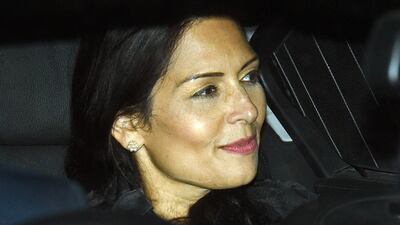Inquests for the 22 victims who died in the terror attack in Manchester are likely to be held partially in secret after the UK government refused to publish evidence from the intelligence service MI5 and the police.
Coroner Sir John Saunders said that the hearings could not go ahead because making the evidence public could “assist terrorists in carrying out the sort of atrocities committed in Manchester”.
The public airing of the information, Mr Saunders added, “would make it less likely that the Security Service and the (counter-terrorism) police would be able to prevent them” in the future.
22 people were killed and hundreds injured in the attack targeting an Ariana Grande concert in May 2017.
The coroner issued the ruling on Friday after granting a request made by home secretary Priti Patel to prevent key intelligence information from being published.
The home secretary made the unusual claim for public interest immunity (PII) on behalf of the security services, MI5 and MI6, and counter terrorism police.
The coroner’s ruling makes the prospect of a public inquiry more likely but could mean bereaved families never learn why the Security Service was unable to stop the attack.
The case would become the first public inquiry since September 11, 2001, enabling the sensitive evidence to be heard but behind closed doors.
Mr Saunders said he would do his “very best” to ensure that the immunity would “not be used as a device for covering up responsibility”.
A lawyer representing one of the victim’s families told a pre-inquest hearing that he had seen “embarrassing” evidence exposing the “shortcomings” of the security services.
John Cooper QC warned the coroner against confusing “personal embarrassment” with “national security”.
Mr Cooper told the hearing last week that “the very people who could potentially be severely criticised” were behind the secrecy request.
22-year-old Salman Abedi detonated a device as crowds of concert-goers left the Manchester Arena.
His brother Hashem Abedi faces 22 counts of murder, attempted murder and conspiracy to cause an explosion likely to endanger life.
He denies helping his brother to carry out the attack.


